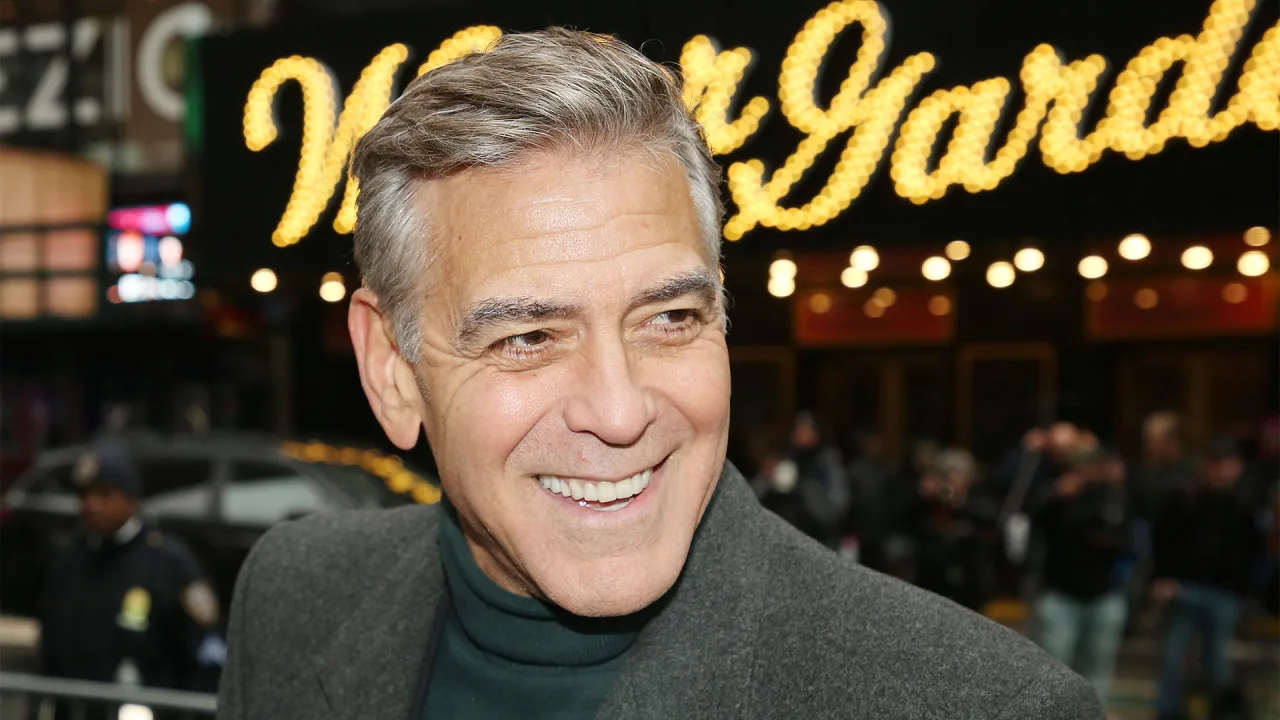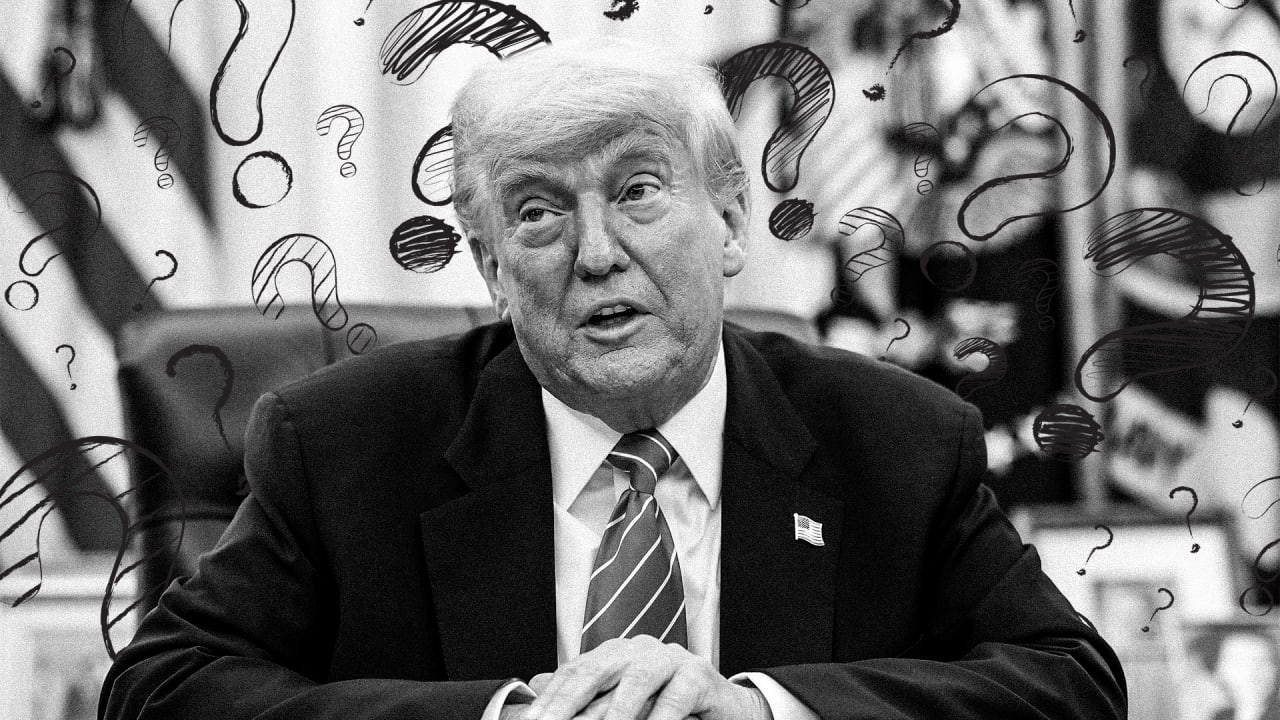Trump got what he needed out of Elon Musk
In his role as head of the so-called Department of Government Efficiency, Elon Musk spent several months gleefully subjecting parts of the government he doesn’t like to an array of metaphorical power tools. “We spent the weekend feeding USAID [United States Agency for International Development] into the wood chipper,” he wrote on X in February, after pushing to illegally withhold billions of dollars appropriated by Congress to fight famine, care for sick people, and vaccinate children against deadly diseases. “Could have gone to some great parties. Did that instead.” A few weeks later, Musk celebrated his accomplishments to date by taking the stage at the annual Conservative Political Action Conference while triumphantly waving a chainsaw overhead. “This is the chainsaw for bureaucracy,” he yelped, just in case the reference was too subtle for anyone in attendance. “CHAINSAW!” On the one hand, Musk’s efforts set up some of his businesses to make a bunch of money, and delighted Republican politicians whose idea of “wasteful” spending is anything that does not make hedge fund executives or car dealership owners wealthier. On the other hand, his White House tenure shaved billions of dollars off his net worth, made it genuinely embarrassing to own a Tesla, and transformed Musk into one of the most reviled political figures in the country. Now, as Musk leaves the Trump administration and returns to the private sector—and as the two men engage in oafish public meltdowns on their respective social media platforms—the question of whether DOGE was, on balance, “worth it” for Musk sort of depends on what happens to his portfolio over the next quarter or so. Already, Musk has embarked on a miniature image rehabilitation tour, framing himself in time-honored reactionary tradition as a tragic victim of his own success. In a soft-lit interview with The Washington Post, he said that DOGE had become the “whipping boy for everything,” and bemoaned the “uphill battle” he faced for simply “trying to improve things in D.C.” In an interview with Ars Technica, Musk admitted that he “probably did spend a bit too much time on politics,” and expressed eagerness to get back to the business that really matters: presiding over failed SpaceX launches. As a result, many retrospectives on Musk’s time at DOGE read like obituaries, both for the organization and the movement it represents. In a recent Reuters profile, for example, a former DOGE staffer predicted that it would “fizzle out” without Musk, and analogized the remaining employees to “kids joining a startup that will go out of business in four months.” But talking about DOGE in the past tense is wrong for several reasons. First, Musk’s actions will continue to inflict pain and suffering long after Trump has left the White House. One expert estimates that Musk’s cuts to USAID have already resulted in about 300,00 preventable deaths, most of them children. Even if the $180 billion that DOGE says it has cut is a generous overestimate, people still died because Elon Musk decided it would be fun to cosplay as the president for a few weeks. Second, Musk’s efforts to pillage the federal government will not end the moment he leaves town. A recent Washington Post analysis estimated that Musk’s companies are propped up by $38 billion in government funding. Although Trump has threatened to stop doing business with Musk during their ongoing posting war—much, much more on that below—SpaceX in particular is integral to the modern U.S. space program, parts of which would grind to a halt without the (non-exploding versions of) Musk’s rockets. Reluctant though Trump may be to keep paying out on these contracts, it would presumably be even more embarrassing for him to leave NASA without a viable in-house method of retrieving astronauts from space. Finally, DOGE was not and was never going to be a one-off effort to, as the conservative activist Grover Norquist once put it, make the government small enough to “drag it into the bathroom and drown it in the bathtub.” For decades, Republicans, at the behest of their corporate donors, have pushed the idea that government should be run like a business, and insisted that the legitimacy of any government expenditure depends on the associated return on investment. Only if elected officials do something about the scourges of wasteful spending, inefficient regulation, and dastardly bureaucracy, the argument goes, can America ever hope to reach its full potential. But Republicans face the same basic challenge every time they try to follow through on this promise: Although voters theoretically support the idea of making government more efficient, the real-world cuts Republicans would make to effectuate that goal are wildly unpopular. Normal people don’t want to gut the National Park Service or the U.S. Postal Service, for example. They don’t support making it easier for big banks to rip off consumers, and they definitely don

In his role as head of the so-called Department of Government Efficiency, Elon Musk spent several months gleefully subjecting parts of the government he doesn’t like to an array of metaphorical power tools.
“We spent the weekend feeding USAID [United States Agency for International Development] into the wood chipper,” he wrote on X in February, after pushing to illegally withhold billions of dollars appropriated by Congress to fight famine, care for sick people, and vaccinate children against deadly diseases. “Could have gone to some great parties. Did that instead.”
A few weeks later, Musk celebrated his accomplishments to date by taking the stage at the annual Conservative Political Action Conference while triumphantly waving a chainsaw overhead.
“This is the chainsaw for bureaucracy,” he yelped, just in case the reference was too subtle for anyone in attendance. “CHAINSAW!”
On the one hand, Musk’s efforts set up some of his businesses to make a bunch of money, and delighted Republican politicians whose idea of “wasteful” spending is anything that does not make hedge fund executives or car dealership owners wealthier. On the other hand, his White House tenure shaved billions of dollars off his net worth, made it genuinely embarrassing to own a Tesla, and transformed Musk into one of the most reviled political figures in the country.
Now, as Musk leaves the Trump administration and returns to the private sector—and as the two men engage in oafish public meltdowns on their respective social media platforms—the question of whether DOGE was, on balance, “worth it” for Musk sort of depends on what happens to his portfolio over the next quarter or so.
Already, Musk has embarked on a miniature image rehabilitation tour, framing himself in time-honored reactionary tradition as a tragic victim of his own success. In a soft-lit interview with The Washington Post, he said that DOGE had become the “whipping boy for everything,” and bemoaned the “uphill battle” he faced for simply “trying to improve things in D.C.” In an interview with Ars Technica, Musk admitted that he “probably did spend a bit too much time on politics,” and expressed eagerness to get back to the business that really matters: presiding over failed SpaceX launches.
As a result, many retrospectives on Musk’s time at DOGE read like obituaries, both for the organization and the movement it represents. In a recent Reuters profile, for example, a former DOGE staffer predicted that it would “fizzle out” without Musk, and analogized the remaining employees to “kids joining a startup that will go out of business in four months.”
But talking about DOGE in the past tense is wrong for several reasons. First, Musk’s actions will continue to inflict pain and suffering long after Trump has left the White House. One expert estimates that Musk’s cuts to USAID have already resulted in about 300,00 preventable deaths, most of them children. Even if the $180 billion that DOGE says it has cut is a generous overestimate, people still died because Elon Musk decided it would be fun to cosplay as the president for a few weeks.
Second, Musk’s efforts to pillage the federal government will not end the moment he leaves town. A recent Washington Post analysis estimated that Musk’s companies are propped up by $38 billion in government funding. Although Trump has threatened to stop doing business with Musk during their ongoing posting war—much, much more on that below—SpaceX in particular is integral to the modern U.S. space program, parts of which would grind to a halt without the (non-exploding versions of) Musk’s rockets. Reluctant though Trump may be to keep paying out on these contracts, it would presumably be even more embarrassing for him to leave NASA without a viable in-house method of retrieving astronauts from space.
Finally, DOGE was not and was never going to be a one-off effort to, as the conservative activist Grover Norquist once put it, make the government small enough to “drag it into the bathroom and drown it in the bathtub.” For decades, Republicans, at the behest of their corporate donors, have pushed the idea that government should be run like a business, and insisted that the legitimacy of any government expenditure depends on the associated return on investment. Only if elected officials do something about the scourges of wasteful spending, inefficient regulation, and dastardly bureaucracy, the argument goes, can America ever hope to reach its full potential.
But Republicans face the same basic challenge every time they try to follow through on this promise: Although voters theoretically support the idea of making government more efficient, the real-world cuts Republicans would make to effectuate that goal are wildly unpopular. Normal people don’t want to gut the National Park Service or the U.S. Postal Service, for example. They don’t support making it easier for big banks to rip off consumers, and they definitely don’t like GOP politicians threatening to take Sesame Street off the air.
By outsourcing much of this unseemly work to Musk and DOGE, Republican lawmakers found a possible solution to their vexing PR problem: a method of speed-running some of the more controversial aspects of their policy agenda, but without having to cast costly votes to implement it.
Now Musk is learning the hard way that although he was using the Republican Party to enrich himself, the Republican Party was using him, too. Republican lawmakers are attempting to pass Trump’s “Big Beautiful Bill,” a budget reconciliation bill that would result in some 10.9 million fewer people with access to health insurance by 2034, according to the nonpartisan Congressional Budget Office. Although the bill would cut some $1.3 trillion in federal spending over a decade, it’s still projected to add an additional $2.4 trillion to the national debt over that same period, thanks to a cool $3.7 trillion in tax cuts.
Musk at first described himself as “disappointed” by the bill’s price tag, which he said “undermines the work that the DOGE team is doing.” When his opinion failed to persuade the White House (or Republican leadership on Capitol Hill) to change course, Musk began lashing out, calling the “Big Ugly Bill” a “disgusting abomination,” and vowing to help “fire all politicians who betrayed the American people” by voting for it. He then went on to call for Trump’s impeachment, threaten to start a new political party, link Trump to the late Jeffrey Epstein, and otherwise mock the president as a hypocritical, spineless ingrate who would have lost the 2024 election in humiliating fashion if not for Musk’s generous infusions of cash.
As it turns out, when you just spent four months torpedoing your brand in pursuit of a shared ideological goal, watching your purported allies immediately abandon it can be a frustrating experience.
In one sense, this constitutes a “split” with Trump, in that Musk is indeed trashing the signature policy initiative of a president whose candidacy he supported to the tune of more than a quarter-billion dollars. But it is also evidence that Musk never fully grasped the nature of his relationship with Trump in the first place: While he was out there taking the (well-deserved) reputational hits for doing all the slashing and burning that Republicans wanted to see, GOP lawmakers were preparing to do what they always do: abandon this fiscal responsibility song and dance at their earliest convenience, and enact more tax cuts that will disproportionately benefit the wealthy at the expense of everyone else.
When he took the gig at DOGE, Musk imagined himself as a revolutionary, uniquely positioned to identify and cut “wasteful” spending by virtue of the power in the Republican Party that he believed he’d rightfully purchased. But Musk believed so strongly in his abilities that he forgot that the GOP does not care about saving public resources, but about redirecting that money to its political allies instead. Even if this iteration of DOGE “fizzles out,” there will be another DOGE before long, because Republicans will never stop looking for ways to slash programs that help vulnerable people, and there will always be someone like Musk who is willing do their dirty work in exchange for the chance to line his pockets.

















































































































































